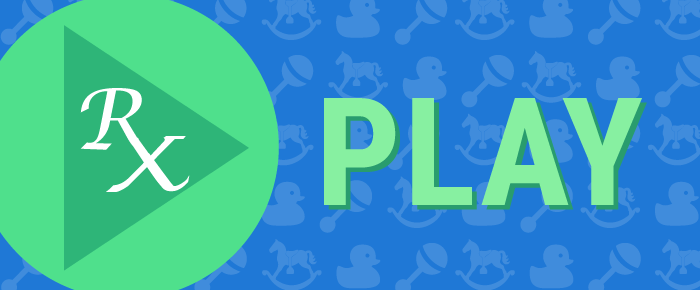Play-Based Learning: A Prescription for Development

As an early intervention therapist, I spend my days immersed in play. Whether I’m visiting a child with Down syndrome, a language delay, or sensory impairments, the core of my therapy is play-based learning. For children from birth to three years old (and beyond), play is a crucial prescription for overcoming developmental delays. While kids naturally embrace this approach, persuading their parents can sometimes be a bit more challenging.
In this article, we will explore the hurdles and benefits of play-based learning, providing you with the knowledge to support this essential developmental approach.
All Good Things Take Time
In our fast-paced world of immediate gratification—think next-day shipping, instant communication via text messaging, and medications that provide instant relief—parents might expect similar speedy results from therapy. However, as therapists, we know that true developmental progress takes time and consistency.
Play-based learning is not an overnight fix; it is a gradual process that fosters long-term growth. This approach leverages a child’s natural inclination towards play, making the learning process enjoyable and engaging. By aligning therapeutic goals with playful activities, we create an environment where children are motivated to participate and learn.
Overcoming Skepticism in a Fast-Fix Culture
Parents often come to therapy with the expectation of quick fixes, much like a ten-day course of antibiotics that promises to clear up symptoms. However, the reality is different when it comes to developmental progress. Here are the two main hurdles we face:
Hurdle #1: Convincing parents that therapy is not a “10-day dosage and all symptoms will clear” prescription.
Hurdle #2: Selling play as the best medicine.
In today’s world, saturated with media, misleading advertising, and creative marketing that preys on anxious parents seeking quick fixes, it’s vital to educate families on the enduring benefits of play-based learning. No flashcard, television show, or phone app can teach their child as effectively as simply playing. Play is an inherent part of childhood. Children are more likely to engage and learn when they are having fun.
Play allows children to express their emotions, reducing stress and anxiety. It helps them develop coping mechanisms and emotional resilience. Additionally, the skills developed through play, such as problem-solving, creativity, and social interaction, are essential for lifelong success. Play-based learning sets a solid foundation for future learning and development. Engaging in play together strengthens the bond between parents and children, providing parents with insight into their child’s world and fostering a supportive and nurturing environment. Partnering with parents in this process not only enhances the child’s development but also equips parents with strategies to support their child at home.
Benefits of Play-Based Learning
When families seem skeptical of my approach, I share with them the extensive benefits of play across the five developmental domains:
- Speech & Language: Through play, children expand their vocabulary and learn different styles of communicative intent such as questioning, requesting, demanding, and pleading. They build effective communication skills by fine-tuning their pragmatic skills, understanding social rules, and interpreting nonverbal language.
- Social & Emotional: Play allows children to imitate and practice adult behaviors, learning to work in groups, share, negotiate, and resolve conflicts. It nurtures empathy and emotional intelligence.
- Cognitive: Play stimulates decision-making and creativity, allowing children to “flex” their imaginative muscles and problem-solving abilities.
- Fine Motor: Engaging in play builds strength and dexterity in children’s hands, preparing them for tasks like handwriting.
- Gross Motor: Play offers opportunities for children to regulate their sensory systems and improve physical strength and coordination.
Play not only affords children the opportunity to learn but also serves as a stress reducer and an outlet to express their feelings and emotions. By creating a supportive and engaging environment through play, we help children develop holistically.
Play Builds Brain… Literally!
The impact of play-based learning goes beyond observable skills—it can shape the brain. I vividly remember working with a little girl who was born with significant brain malformations. Her initial brain scan looked like this:

Figure 1: Initial Brain Scan
After just one year of early intervention services, primarily delivered through play-based learning, her brain showed remarkable improvement:

Figure 2: Second Brain Scan
The transformation was astounding. If this isn’t proof that play works, I don’t know what is!
With compelling evidence like the brain scans above, it becomes easier to convince families that we are not “just playing” with their child. Instead, we are facilitating significant growth and development. We are helping children strengthen their bonds with caregivers, all while having an incredible amount of fun.
The Lasting Impact of Play-Based Learning
In a world full of quick fixes and instant solutions, play-based learning stands out as a tried-and-true method for fostering child development. By educating parents on the benefits and importance of play, we can help them understand that a prescription for play-based learning is all their child needs for a strong start in life. Let’s embrace the power of play and watch our children flourish.
For more insights and strategies on how to effectively implement play, consider exploring the course on Purposeful Play for Therapeutic Progress co-developed by myself and Nicole M. Sergent, MPT. This course delves into the societal factors affecting play, evidence-based benefits, and practical applications for therapists to become play advocates both in their practice settings and communities.

